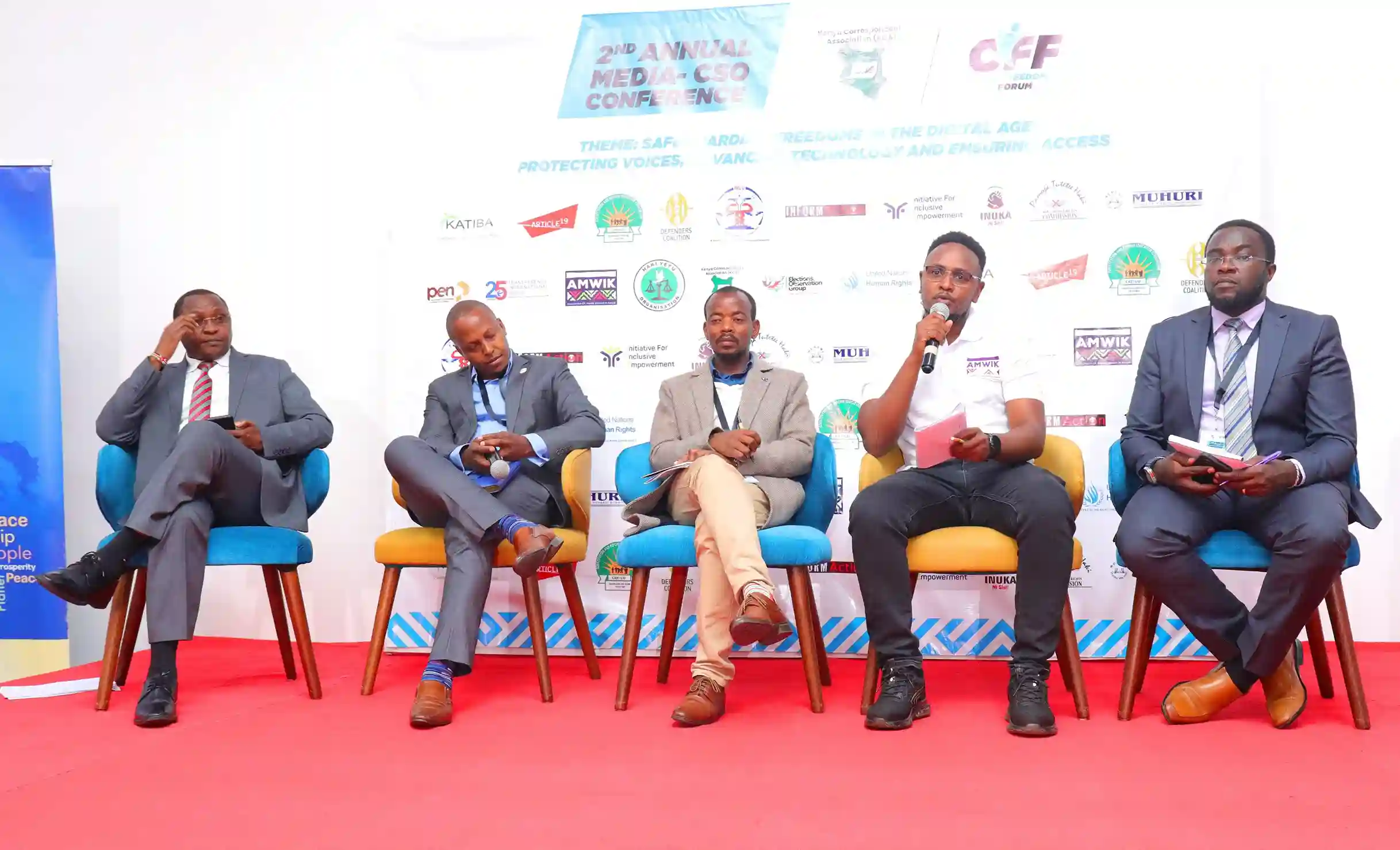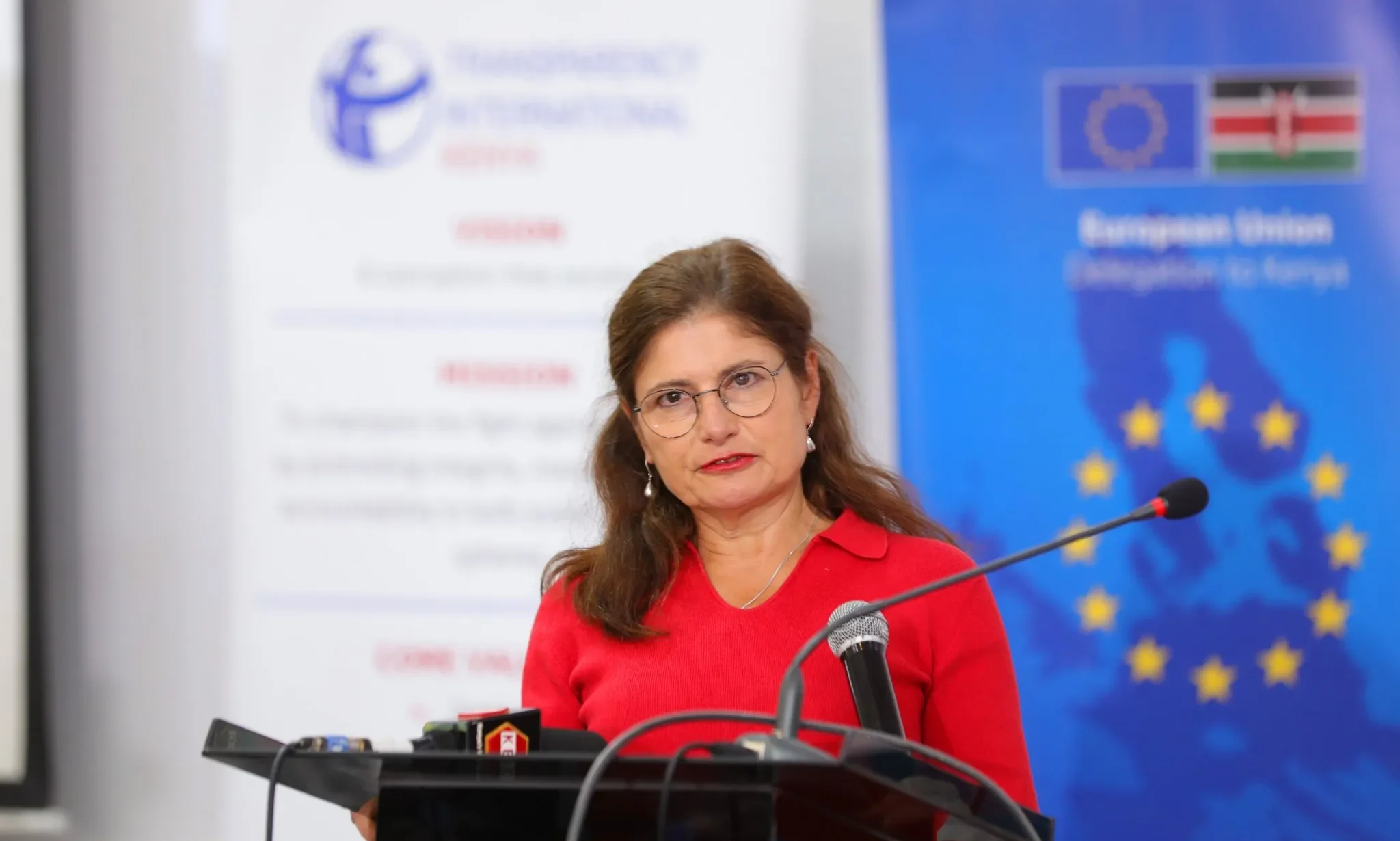Journalists and whistleblowers are the backbone of a free and democratic society. They expose corruption, hold power to account, and inform the public. However, they face increasing threats and risks.
A panel session on artificial intelligence (AI), media freedom, and the protection of journalists and whistleblowers called on the government, media organisations, and civil society to take concrete steps to protect them.
The 2nd Annual Media-CSO Conference, jointly organised by the Civic Freedoms Forum (CFF) and the Kenya Correspondents Association (KCA), highlighted the increasing risks faced by those who expose corruption, abuse of power, and other societal ills.
Themed “Safeguarding Freedoms in the Digital Age: Protecting Voices, Advancing Technology, and Ensuring Access,” the conference shared the challenges and opportunities facing media practitioners and civil society actors in the digital landscape.
As tensions rise between state regulations and operational freedoms, the forum provided a platform for open dialogue and collaborative solutions to strengthen digital freedoms, protect voices, and improve access to information.
Safeguarding Journalists and Whistleblowers

Key concerns from the panel that consisted of David Indeje, KICTANet, Dennis Mbau, Communications Association of Media Women in Kenya (AMWIK), Samuel Komu, Transparency International, and Dr Zachary Mwangi, Witness Protection Agency, noted that journalists and whistleblowers continue to face physical threats, including intimidation, harassment, and even violence.
Two, there has been a surge in strategic lawsuits against public participation (SLAPPs), which are used to silence critics and deter investigative journalism.
Three digital threats—online harassment, cyberbullying, and doxing—are prevalent, particularly for women journalists in Kenya.
In addition, despite legal frameworks, the implementation of witness protection programs remains inadequate, leaving many vulnerable.
Calls for Legal and Institutional Reforms
The panel called on the government, media organizations, and civil society to take concrete steps to protect journalists and whistleblowers:
- Strengthen Legal Framework: Enact and enforce comprehensive legislation to protect journalists and whistleblowers, including provisions for anonymity and witness protection.
- Independent Investigative Bodies: Establish independent bodies to investigate attacks on journalists and hold perpetrators accountable.
- Digital Safety Training: Provide journalists with training on digital security and online safety practices.
- Support for Independent Media: Promote media pluralism and support independent media outlets.
- Public awareness campaigns: Raise public awareness about the importance of press freedom and the dangers faced by journalists.
Protecting Voices, Advancing Democracy
The European Union Ambassador to Kenya, H. E. Henriette Geiger, emphasised the importance of media freedom and civil society in safeguarding democracy and holding power to account.
She acknowledged the challenges faced by the media, including economic pressures, intimidation, and self-censorship. The Ambassador also highlighted the growing threat of disinformation and the need for critical thinking and media literacy.
She encouraged participants to leverage the power of collective action to address the challenges facing the sector and to ensure a vibrant and free media landscape in Kenya.
The Ambassador also discussed the potential of AI to both enhance and threaten media freedom. She emphasised the need for responsible AI development and deployment, as well as for media organizations to develop the skills and tools to navigate the AI landscape.
“In a world where disinformation is increasingly an issue, we have to be very careful how we use all those new tools, which have tremendous power, but with power comes also risks. We have seen how AI is developing. AI can be extremely useful, but it can also be dangerous, so we have to make sure that we have the right sort of tools to govern that space, the same on media platforms.”
Kenya Takes a Leap Forward in Ethical AI with UK-Kenya AI Challenge Fund
![]()




